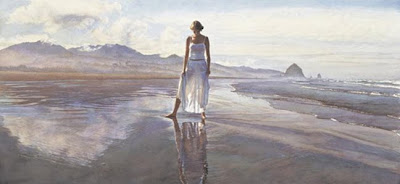Mahatma Gandhi became one of the pivotal figures, if not the main figure, in India's history in the Twentieth Cetury. Along with Jinnah and Nehru, Gandhi shaped India's history up to its independence in 1947.
Mahatma Gandhi was born in 1869 and he died in 1948.
Gandhi was born in Porbander in western India. In 1888, he went to London to study law. He returned to Bombay to work as a barrister but went to South Africa to work in 1907. In South Africa, he took part in passive protests against the Transvaal government's treatment of Indian settlers who were in the minority in the region. In 1915, he returned to India and, after joining the Congress movement, he emerged as one of the party's leaders.
Gandhi encouraged Indians to boycott British goods and buy Indian goods instead. This helped to revitalise local economies in India and it also hit home at the British by undermining their economy in the country. Gandhi preached passive resistance, believing that acts of violence against the British only provoked a negative reaction whereas passive resistance provoked the British into doing something which invariably pushed more people into supporting the Indian National Congress movement.
Gandhi was imprisoned in 1922, 1930, 1933 and in 1942. While in prison, he went on hunger strike. His fame was such that his death in prison would make international headlines and greatly embarrass the British at a time when Britain was condemning dictators in Europe.
In 1931, Gandhi came to Britain for the Round Table conferences. Nothing was achieved except for the publicity that Gandhi received for dressing in the clothes of an Indian villager; Gandhi saw this type of dress as perfectly normal for a man who represented the Indian people. The British representatives at the conference were more soberly dressed in formal morning dress.
When in India, Gandhi took on the British where possible. He famous walk to the sea to produce salt was typical of his actions. Britain had a monopoly on salt production in India and Gandhi saw this as wrong. Hence his decision to produce salt by the sea.
He realised that the religious issues of India were too deep for any remedy to work. Hence he collaborated with Mountbatten and Wavell in the build up to independence in 1947. This association with the break-up of India was to cost him his life. There had been one assassination attempt on Gandhi on January 20th 1948 - it had failed. Just ten days later on the 30th January, he was assassinated by a Hindu fanatic who could not forgive Gandhi for his belief that Muslims had equal value to Hindus and no-one was better than anybody else.
Mahatma Gandhi was born in 1869 and he died in 1948.
Gandhi was born in Porbander in western India. In 1888, he went to London to study law. He returned to Bombay to work as a barrister but went to South Africa to work in 1907. In South Africa, he took part in passive protests against the Transvaal government's treatment of Indian settlers who were in the minority in the region. In 1915, he returned to India and, after joining the Congress movement, he emerged as one of the party's leaders.
Gandhi encouraged Indians to boycott British goods and buy Indian goods instead. This helped to revitalise local economies in India and it also hit home at the British by undermining their economy in the country. Gandhi preached passive resistance, believing that acts of violence against the British only provoked a negative reaction whereas passive resistance provoked the British into doing something which invariably pushed more people into supporting the Indian National Congress movement.
Gandhi was imprisoned in 1922, 1930, 1933 and in 1942. While in prison, he went on hunger strike. His fame was such that his death in prison would make international headlines and greatly embarrass the British at a time when Britain was condemning dictators in Europe.
In 1931, Gandhi came to Britain for the Round Table conferences. Nothing was achieved except for the publicity that Gandhi received for dressing in the clothes of an Indian villager; Gandhi saw this type of dress as perfectly normal for a man who represented the Indian people. The British representatives at the conference were more soberly dressed in formal morning dress.
When in India, Gandhi took on the British where possible. He famous walk to the sea to produce salt was typical of his actions. Britain had a monopoly on salt production in India and Gandhi saw this as wrong. Hence his decision to produce salt by the sea.
He realised that the religious issues of India were too deep for any remedy to work. Hence he collaborated with Mountbatten and Wavell in the build up to independence in 1947. This association with the break-up of India was to cost him his life. There had been one assassination attempt on Gandhi on January 20th 1948 - it had failed. Just ten days later on the 30th January, he was assassinated by a Hindu fanatic who could not forgive Gandhi for his belief that Muslims had equal value to Hindus and no-one was better than anybody else.































































































